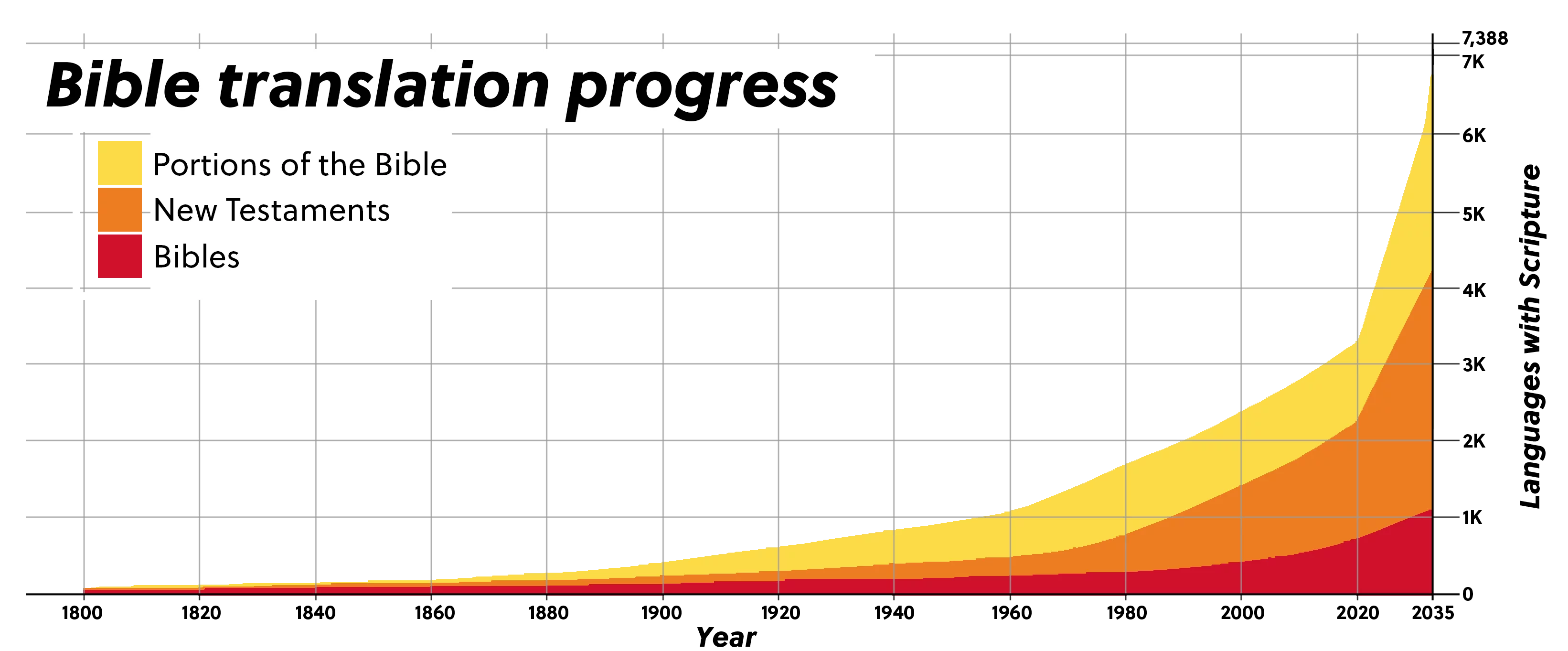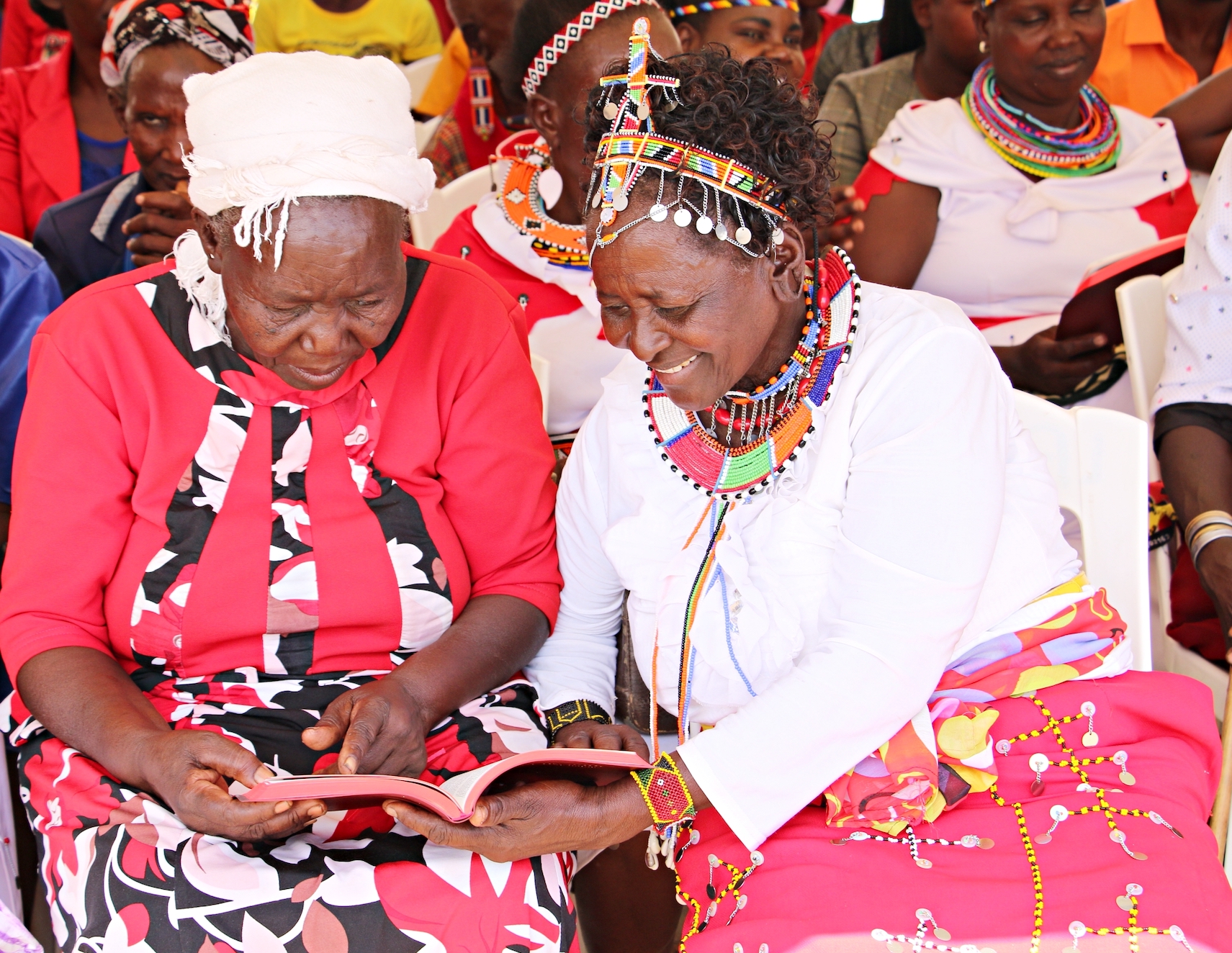Did you know that 42% of the world’s 724 Bibles that have been translated, were published since the year 2000?
The pace of Bible translation is increasing. And it’s not just the number of Bible translations being completed that is increasing rapidly. But also the number of new ones that are starting. A record number of 367 language projects started last year. That’s a rate of one a day.
But why is the pace quickening?
God is using three main pillars to build this acceleration of the work of Bible translation on:
More technology
‘Computers really help us a lot,’ says Edoh, a translator with the Ifè team in Togo. Access to computers – and generators that enable computers to work in places with unreliable electricity – give translation teams the essential equipment they need to progress.
Cutting-edge translation software is also making a huge difference in the quality and pace of translation. This software enables translators to compare their work side by side with other translations. And with the original languages the Bible was written in. Plus increased connectivity means that people working in different places – and even across different continents – can now work together using this software in real time.
The development of technology that translation teams can draw on continues to develop rapidly. Wycliffe people like Mark Woodward, who is from Wiltshire, are serving as part of teams developing AI technology using data science to help with the translation checking process. ‘We think AI can be a tool that can make things better and more efficient for Bible translators,’ Mark explains. ‘It could be a similar revolution within the work of Bible translation to when translation teams started to use computers.’




